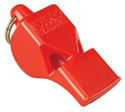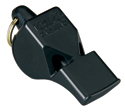
 AReferee.com
Futsal Laws Test #410
AReferee.com
Futsal Laws Test #410
Free Futsal FIFA Laws of the Game Quiz and Tests for Referee's, Coaches, Players and Fans
Are you sure you want to exit this test?
BEWARE: This page is the Futsal TESTS and is NOT the SOCCER(FOOTBALL) TESTS!!!! Click here for Soccer
More Tests
More Tests
More Tests
Next 

0
0
0% Correct
Question
1 of 20
1 of 20
Can a player take a kick-in from a sitting position?
| (a)No. |
| (b)Yes, because the kick-in procedure is followed. |
| (c)Yes, only provided that it is taken by a player other than the goalkeeper. |
| (d)None of the previous answers is correct. |
| Reference: Law 15 - The Kick-in ; Law 16 - The Goal Clearance ; Law 17 - The Corner Kick |
Question
2 of 20
2 of 20
Should the referees take into consideration the development of a move or the position of the ball before signalling the end of a period of play?
| (a)No, they should announce the end of the period immediately. |
| (b)Never. |
| (c)Only when the ball has been kicked towards one of the goals. |
| (d)None of the previous answers is correct. |
| Reference: Law 7 - The Duration of the Match ; Law 8 - The Start and Restart of Play |
Question
3 of 20
3 of 20
Is it always necessary for the referees to blow the whistle to stop play?
| (a)No. |
| (b)Yes. |
| (c)No, because it could be touched by a spectator. |
| (d)Yes, provided that it is not a mistake by a referee who blows the whistle involuntarily. |
| Reference: Law 9 - The Ball In and Out of Play ; Law 10 - The Method of Scoring |
Question
4 of 20
4 of 20
Can the referees award a penalty kick for an offence committed by a defender in his penalty area if the ball is outside of this area ?
| (a)Yes, if the player who suffered the foul is within said area and the ball is in play. |
| (b)Yes, always provided that the offence committed is one of the 10 fouls punishable with a penalty kick, and the player who suffered the offence is within said area and the ball is not in play. |
| (c)No, never. |
| (d)Yes, but only if the player who suffered the offence is within the penalty area and the ball is not in play. |
| Reference: Law 14 - The Penalty Kick |
Question
5 of 20
5 of 20
Can a goalkeeper challenge a dropped ball?
| (a)Yes. |
| (b)No, never. |
| (c)It is at the discretion of the referees. |
| (d)Only if he challenges it with the opposing goalkeeper. |
| Reference: Law 8 - The Start and Restart of Play |
Question
6 of 20
6 of 20
Once an international match has started, and after one of the teams had presented only five players to the referee, can any substitutes that arrive while the match is being played take their place on the bench?
| (a)Law 3 states "the names of the players and substitutes must be given to the referees prior to the start of the match, whether they are present or not", therefore they may not sit on the bench. |
| (b)Yes, provided that they arrive before the start of the second period. |
| (c)It depends on the competition rules. |
| (d)Answers a and c are correct. |
| Reference: Law 3 - The Number of Players |
Question
7 of 20
7 of 20
Which of the following are not duties of the third referee while penalty kicks are being taken to decide the outcome of a match or qualifier?
| (a)Checking that the ball has crossed the goal line. |
| (b)Indicating that the goalkeeper has moved forward before the ball is kicked. |
| (c)Supervising the conduct of the players chosen and making sure that none of them takes another penalty until all of their team-mates have taken theirs. |
| (d)Answers a and b are correct. |
| Reference: Law 6 - The Assistant Referees |
Question
8 of 20
8 of 20
Which of the following statements is not correct. A kick-in …
| (a)is awarded when the ball has completely crossed the touch line, whether on the ground or in the air. |
| (b)is taken at the point where the ball crossed the touch line. |
| (c)is awarded to the team of the player that last touched the ball. |
| (d)is awarded when the ball strikes the roof. |
| Reference: Law 15 - The Kick-in ; Law 16 - The Goal Clearance ; Law 17 - The Corner Kick |
Question
9 of 20
9 of 20
Can a futsal match be played on artificial turf?
| (a)No |
| (b)Only in international matches. |
| (c)Yes, if the pitch has a ceiling. |
| (d)Only in national competitions. |
| Reference: Law 1 - The Pitch ; Law 2 - The Ball |
Question
10 of 20
10 of 20
Which of the following cases can not be sanctioned with a caution for unsporting behavior?
| (a)Tripping an opponent. |
| (b)Deliberately playing the ball by hand. |
| (c)Dissent with words or actions. |
| (d)Holding an opponent. |
| Reference: Law 12 - Fouls and Misconduct |
Question
11 of 20
11 of 20
Can a captain send off a player from his own team for a sending-off offence?
| (a)No. Only the referees can send a player off. |
| (b)No, only the team coach can send off one of his own players. |
| (c)Yes, the captain has the authority to send a player off. |
| (d)None of the previous answers is correct. |
| Reference: Law 5 - The Referee |
Question
12 of 20
12 of 20
Can a player wear some kind of protective equipment during a match to avoid injury?
| (a)Players cannot wear headgear, facemasks or knee or arm protectors as they are dangerous for the other players. |
| (b)Players can wear headgear, facemasks and knee and arm protectors, provided that they are not dangerous for other players. |
| (c)No, because headgear and facemasks may be dangerous for other players. |
| (d)None of the previous answers is correct. |
| Reference: Law 4 - The Players’ Equipment |
Question
13 of 20
13 of 20
Of the following offences comitted by a goalkeeper, which are not punishable by sending-off?
| (a)Serious foul play. |
| (b)Violent conduct. |
| (c)Using offensive, insulting or abusive language and/or gestures. |
| (d)Receiving the ball directly from a kick-in by a team-mate. |
| Reference: Law 12 - Fouls and Misconduct |
Question
14 of 20
14 of 20
For which of the following reasons should a game be extended?
| (a)For a penalty kick to be taken from the second penalty mark. |
| (b)For a direct free kick without a wall to be taken. |
| (c)For a penalty to be taken. |
| (d)All of the previous answers are correct. |
| Reference: Law 7 - The Duration of the Match ; Law 8 - The Start and Restart of Play |
Question
15 of 20
15 of 20
A player takes a free kick towards his goal from outside the penalty area. In spite of touching the ball, the goalkeeper does not manage to stop it from entering the goal. What action should the referees take?
| (a)Award the goal. |
| (b)Order the free kick to be taken again. |
| (c)Award a corner kick. |
| (d)Although he doesn´t avoid a goal, if the goal keeper touches the ball, play must be restarted with an indirect free kick awarded against him. |
| Reference: Law 13 - Free Kicks |
Question
16 of 20
16 of 20
When play has been stopped due to violent conduct, how is the match restarted when there is still time remaining to play?
| (a)With a direct free kick, indirect free kick or a penalty kick. |
| (b)With a direct free kick or a penalty kick. |
| (c)With a direct free kick, indirect free kick, penalty kick or dropped ball. |
| (d)None of the previous answers is correct. |
| Reference: Law 12 - Fouls and Misconduct |
Question
17 of 20
17 of 20
If a goalkeeper throws the ball, when the ball is in play, from his penalty area, and scores in the opponent`s goal, what decision should the referees take?
| (a)Disallow the goal. A goal cannot be scored with the hands. |
| (b)Allow the goal. |
| (c)Award a goal kick. |
| (d)Answers a and b are correct. |
| Reference: Law 10 - The Method of Scoring |
Question
18 of 20
18 of 20
What distance should players from an opposing team be from the player who takes a kick-in?
| (a) 25 cm. |
| (b)At least 2 m. |
| (c)No less than 5 m. |
| (d)There is no required distanced. |
| Reference: Law 15 - The Kick-in ; Law 16 - The Goal Clearance ; Law 17 - The Corner Kick |
Question
19 of 20
19 of 20
Any player can change places with the goalkeeper, provided that …
| (a)the change takes place during a stoppage in play and the third referee is informed. |
| (b)the change takes place during a stoppage in play and the referees are informed. |
| (c)the change takes place with the ball in play and one of the assistant referees is informed. |
| (d)All of the previous answers are correct. |
| Reference: Law 3 - The Number of Players |
Question
20 of 20
20 of 20
A player is cautioned if he commits the following infringements. Indicate which of these is not correct.
| (a)Unsporting behavior. |
| (b)Persistent infringement of the Futsal Laws of the Game. |
| (c)Dissent with offensive words and/or actions. |
| (d)Delaying the restart of play. |
| Reference: Law 12 - Fouls and Misconduct |
AReferee.com is not associated with FIFA, USSF or AYSO. Publications and Trademarks referenced in this site are the property of their respective owners.
Contact us -
Copyright © 2024 AReferee.com All Rights Reserved.